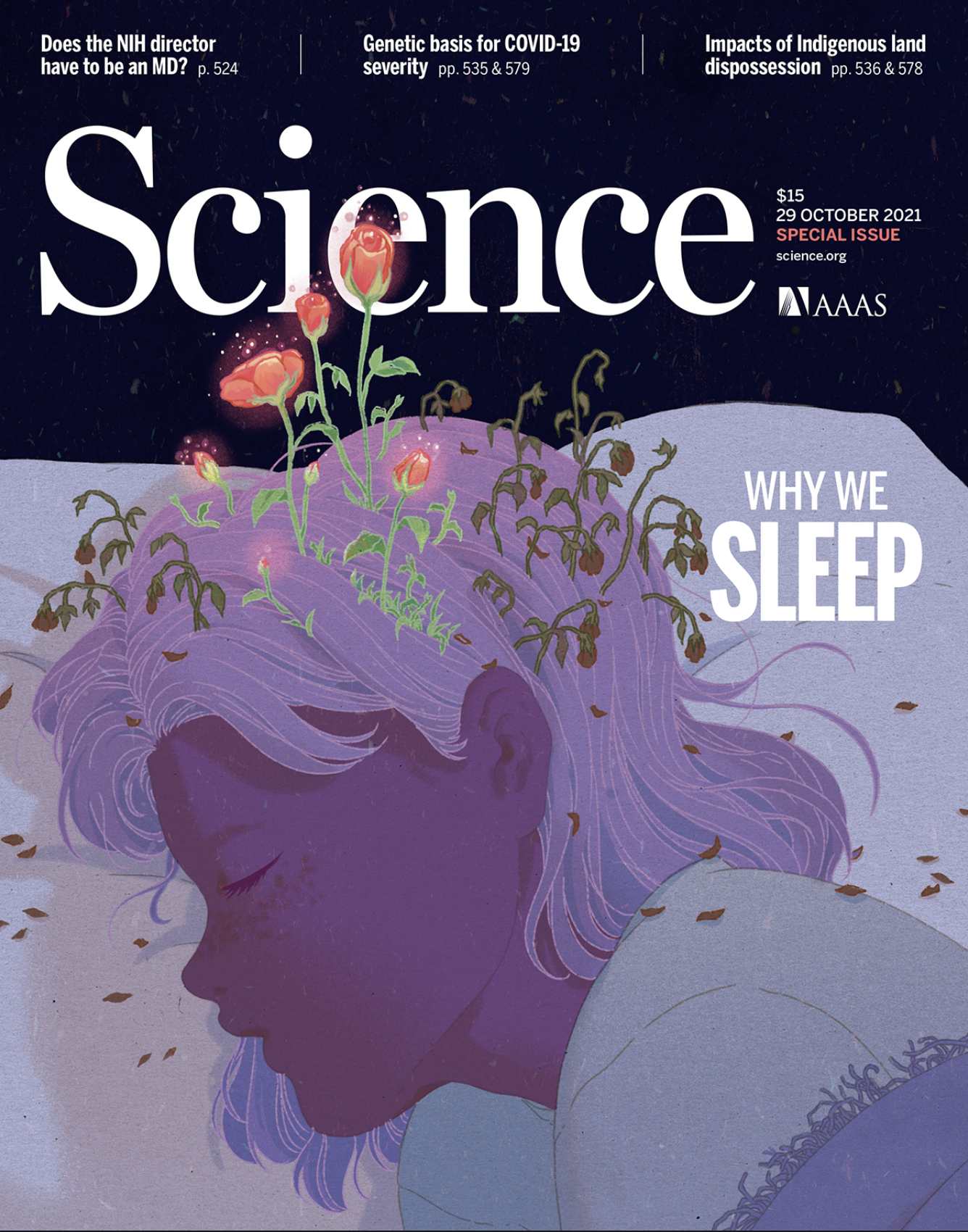BME’s Laura Lewis in SCIENCE
Using fMRI technology, Lewis’s research on sleep is featured in one of the world’s top academic journals.

An article by Assistant Professor Laura Lewis is included in special issue of Science, devoted to the essential physiological process of sleep. Our bodies may be quiet and largely immobile, but our brains are highly active. Despite intense research, why we sleep remains one of the most baffling questions in neuroscience. The special issue summarizes recent insights into the basic mechanisms underlying sleep and the many functions our brains perform during it.
Lewis’s article, The Interconnected Causes and Consequences of Sleep in the Brain, discusses recent advances in understanding how sleep maintains the physiological health of the brain through interconnected systems of neuronal activity and fluid flow. The neural dynamics that appear during sleep are intrinsically coupled to its consequences for blood flow, cerebrospinal fluid dynamics, and waste clearance. Recognizing these linked causes and consequences of sleep has shed new light on why sleep is important for such disparate aspects of brain function.

Lewis and her lab team focus on the complex neural circuits that govern sleep. To do that, they’ve built upon a common brain imaging technique—functional magnetic resonance imaging (fMRI)—to innovate new technologies for monitoring brain activity during sleep. Through their ground breaking research, they hope to gain a deeper understanding of how sleep promotes brain health and why sleep is disrupted in neurological and psychiatric disorders.
Science is the peer-reviewed academic journal of the American Association for the Advancement of Science and one of the world’s top academic journals.